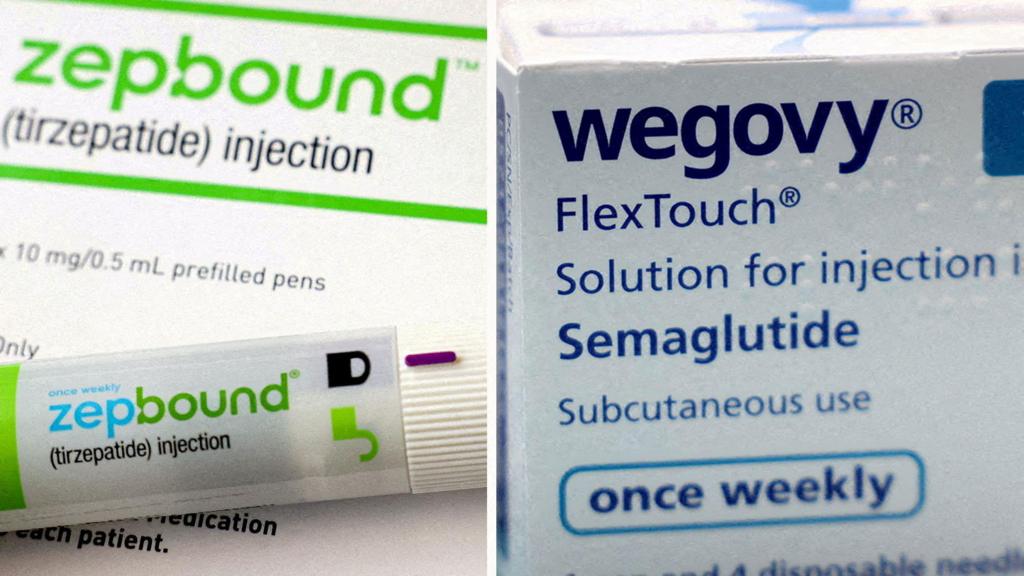Former U.S. President Donald Trump has announced agreements aimed at reducing the cost of popular weight-loss medications, as pharmaceutical pricing becomes a focal point of his administration’s messaging regarding affordability.
Speaking alongside pharmaceutical executives at the White House, Trump unveiled deals with Eli Lilly and Novo Nordisk. Consumers are expected to pay between $245 and $350 per month for obesity drugs such as Wegovy and Zepbound.
Many GLP-1 drugs, utilized in the treatment of both diabetes and obesity, can cost over $1,000 per month without insurance coverage or discounts.
The agreements will expand Eli Lilly’s and Novo Nordisk’s access to Medicare and Medicaid, the government’s public healthcare programs for elderly and low-income Americans.
Eli Lilly also stated that it would be exempt from tariffs for three years as part of the agreement with the Trump administration.
According to senior administration officials, an estimated 10% of Medicare beneficiaries will be eligible for expanded access to GLP-1 drugs, with a co-pay of only $50.
Officials stated that Medicaid enrollees will experience a staggered start date based on when their respective states enroll in the program.
Trump has long advocated for “most-favored nations” pricing, a policy intended to align drug prices in the U.S. with lower prices in other countries.
The obesity drugs will be sold at discounted prices on TrumpRx, a government-run direct-to-consumer website scheduled to launch by January.
On TrumpRx, Wegovy and Zepbound will have an average starting price of $350 per month, decreasing to $250 within two years, according to administration officials. The Medicare prices for Ozempic, Wegovy, Mounjaro, and Zepbound will be $245.
In addition to Novo Nordisk’s Wegovy, Eli Lilly’s weight-loss pill, orforglipron, will be sold for $149 for the lowest dose, Eli Lilly stated. The company’s Zepbound medication will cost $299 for a starting dose.
These prices are contingent upon Food and Drug Administration (FDA) approval of the pills.
“Lilly is in a unique position to work with the U.S. government to rebalance the global system, expand access, and lower costs for Americans,” said David Ricks, Eli Lilly’s chief executive, in a statement.
GLP-1 drugs are often not covered by private insurance. Federal law prohibits Medicare from covering the drugs when used solely for weight loss, although they are typically covered when used to treat diabetes and cardiovascular disease. Only 13 states provide coverage under Medicaid for weight loss purposes.
Health Secretary Robert F Kennedy Jr, speaking at the White House, stated that the agreements were the result of months of negotiations with Eli Lilly and Novo Nordisk. He characterized obesity as “the number one driver of chronic disease” in the U.S.
“This will be a lifesaver to them,” Kennedy said.
“It’s not a panacea, it’s not a silver bullet,” he added, emphasizing the importance of dietary changes and physical exercise.
Since July, Trump has been pressuring pharmaceutical firms to lower drug prices. He sent letters to 17 drug companies in the summer, giving them 60 days to respond to his demands for lower prices.
Pfizer was the first major drug maker to reach a deal with Trump, slashing prices for some medicines by up to 85% on the TrumpRx site. Pfizer also agreed to lower prescription drug prices for Medicaid.
AstraZeneca and EMD Serono have also reached deals with the administration in recent weeks.
Pelosi made history as the first female Speaker and left an indelible mark on US politics.
The US Congresswoman directly challenged Donald Trump throughout his presidency, with the tension often spilling out in front of the press.
The Trump administration has sought to justify the strikes by saying it is in an armed conflict with drugs gangs.
A measurement programme shows a slight rise in overweight and obese children in two age groups.
Donald Trump says thousands of Christians are being killed in Nigeria – where has he got the numbers from?

